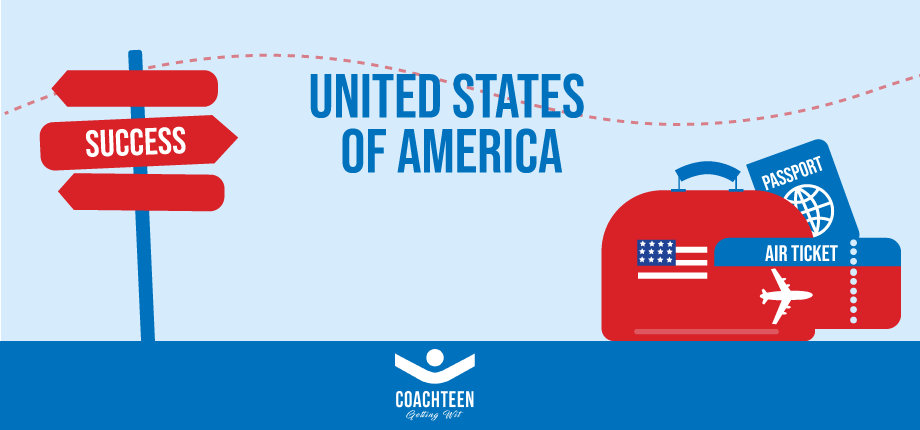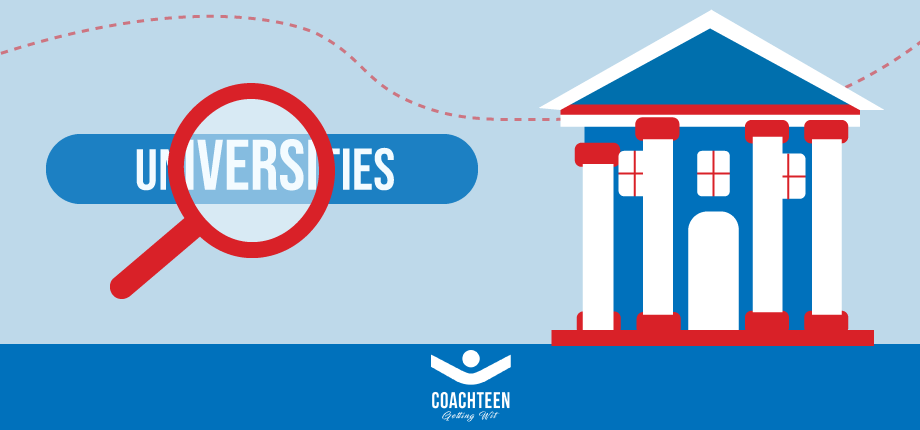Guide to Study in the US

Do you want to live your dream of study at an American university, but you don’t know how to do it? We teach you everything you need to know and how to complete every process to achieve your goal of studying in the US.
How to Study in the US
1. Look for the Right University
The first thing you have to do is explore all the options the US has to offer. There are thousands of universities and colleges for you to choose from, and you should run a thorough investigation before selecting one. Remember, you will be studying and living there for years, so choosing the right one is essential.
You should considerer your needs, goals, and priorities before selecting one. Keep in mind your academic, personal, and financial possibilities. The best colleges or universities are the ones that best match your requirements; you shouldn’t try to fit into a school that doesn’t suit you.
2. Find the Funds for Your Studies
Evaluating and planning your finances is one the first thing you should do. Once you have chosen a few university options, you should evaluate their tuition fees and your ability to pay them. Consider that studying in the US also includes transport, housing, food, and other living expenses.
Tuition fees vary greatly depending on the university you choose: public universities are generally less expensive than private colleges. Likewise, the living cost in the US varies from place to place. Generally, smaller towns and rural areas have lower costs of living.
If you are not capable of paying your studies in the universities you are interested in, you could apply for financial aid or scholarships. Most of the higher-education institutions in the US offer a variety of financial assistance to international students.
3. Complete Your Application Process
The application process for the universities in the US is demanding; it takes a significant amount of time and effort. The wise way to approach is to start preparing months in advance and to stay organized and informed throughout the entire process.
Most universities in the US require international students to take an English as a second language test, such as the Test of English as a Foreign Language (TOEFL) or the International English Language Testing System (IELTS), and exams for undergraduates, like the Scholastic Aptitude Test (SAT) or the American College Testing (ACT).
These tests shouldn’t be taken lightly. Especially the SAT and ACT, which are very competitive tests, and their results determine your acceptance in the universities and the possible scholarships you could be granted. Therefore, you should get prepared appropriately for them.
Usually, your application will require an application fee, an application form, a personal essay, references, a transcript of academic achievements, SAT results, and financial statements.
4. Apply for a Student Visa
As an international student in the US, there are three types of Visa you could be issued: F1 for academic studies, J1 for practical training not available in your home country, and M1 for vocational studies. The F1 and the J1 Visas allow the opportunity of employment during your stay, but the J1 does not.
When the time comes, take into consideration that Visa interviews are short. Consequently, you should make the most of your time to explain why you want to study in the US, how you plan to fund your time in college, and what your plans are when you finish your studies.
5. Prepare Your Arrival
Never underestimate the benefits of planning ahead. A well-organized travel plan could be the difference between a fulfilling stay in the US or a disastrous one.
You should make all the arrangements for your arrival and your stay with enough time, including travel tickets and schedule, accommodations, available budget, among others.
Before your departure, you should also study how to adapt to the American culture, because adjusting to it can be challenging and frustrating to some international students. Try to familiarize yourself with the American customs; it will help you coping with the changes and making the transition to a new easier cultural environment.

Studying and living in the US bring countless benefits to the academic, personal, and professional lives of students, but achieving that takes commitment and determination. If this is your dream, follow the recommendations in this guide during your application process and turn your dream into a reality without breaking a sweat!






